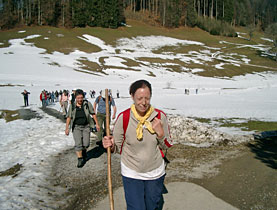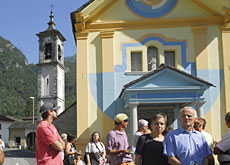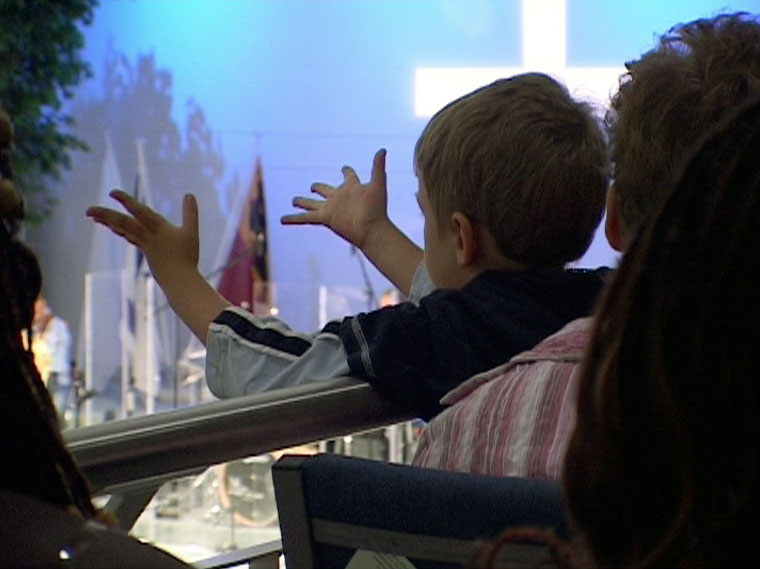People pick and mix their spirituality

The breakdown of barriers between religions has empowered individuals to choose their own version of spirituality, a conference has heard.
The trend has been magnified by the rise and decline of minority sects, a phenomenon that has both weakened the power of traditional organised religion and created a culture of tailor-made spirituality.
Rafael Walthert from Zurich University’s department of religious science told swissinfo that the process was started by a profusion of religious cults 40 years ago.
“There was lot of attention focused on smaller religious movements in the 1960s because they were considered dangerous. But interest in these movements declined and many of them simply disappeared,” he said.
“But their ideas have diffused into the wider society. So now we find ideas that were originally found only in small esoteric Hindu movements being taken up by ordinary people.”
A study in 1999 revealed that nearly as many Swiss people believed in reincarnation (a third) as in the belief that Jesus is the son of the Christian God (37 per cent).
People have also become increasingly more likely to explore their spirituality through yoga and a variety of evening classes.
Lifestyle choice
The rise and fall of cults and the increasingly diverse ethnicity of Swiss society have influenced this trend, according to Walthert.
“Religious belief is now influenced not so much by big institutions like the Protestant or Catholic Churches,” he said. “There is now a big market of religious ideas and strict religion is giving way to a more individualistic lifestyle choice.”
He added: “People might practise yoga in the church hall after a service, attend an evening class the next day and visit a Hara Krishna temple or a Shaman the next.”
The impact of this trend has made society more tolerant of religious pluralism, Walthert believes. And the power of individual choice has created a paradoxical challenge for the established Christian Church.
“Sixty years ago people did not decide individually if they went to Church, they did so because the rest of the village went. If religion continues to be more a matter of individual choice, then church attendance will continue to decrease,” he said.
The 2000 census confirmed that pews across Switzerland are emptying. While 46.2 per cent professed allegiance to the Catholic Church in 1990, this figure had dropped to 41.8 per cent by 2000. Support for the Protestant Church meanwhile had fallen to 33 per cent from 38.5 per
cent.
Freedom of conscience
But Walthert also had better news for the established church.
“Those people who still choose go to church are likely to be more serious about it than someone who feels compelled to go,” he said.
“And people who believe in reincarnation might be more likely to go to church because they are interested in the afterlife. In this sense, there might be a positive correlation between new religion and traditional religious practice.”
The two-day conference, entitled “The end of the community? New religious movements and change”, was hosted by Zurich University’s department of religious science on Friday and Saturday.
swissinfo, Matthew Allen
Religious breakdown of the population, 2000 census:
Roman Catholic – 41.8%
State-recognised Protestant – 33.0%
Free (mainly evangelical) Protestant – 2.2%
Old Catholic – 0.2%
Orthodox – 1.8%
Other Christians – 0.2%
Jewish community – 0.2%
Muslim – 4.3%
Buddhist – 0.3%
Hindu – 0.4%
Other – 0.1%
No religion – 11.1%

In compliance with the JTI standards
More: SWI swissinfo.ch certified by the Journalism Trust Initiative





You can find an overview of ongoing debates with our journalists here . Please join us!
If you want to start a conversation about a topic raised in this article or want to report factual errors, email us at english@swissinfo.ch.